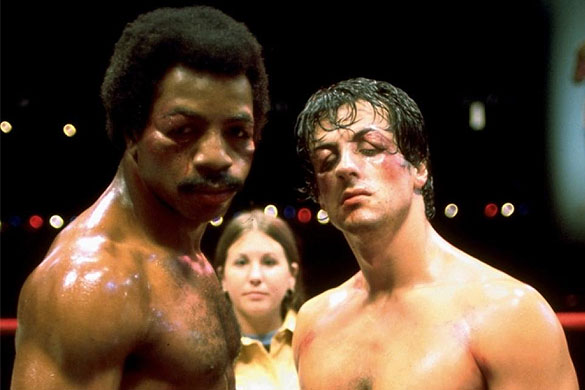Best of the Week: 'Captain America: Civil War' Trailer, First Look at 'Wonder Woman' and More
The Important News
First Looks: Gal Gadot in Wonder Woman. Chris Hemsworth revealed stunning weight loss for In the Heart of the Sea.
Remake Report: Kenneth Branagh will star in his own redo of Murder on the Orient Express. Angelina Jolie might star in a remake of Bride of Frankenstein. Chef will be remade in India.
Franchise Fever: Tom Cruise may star in The Mummy and more Universal Monsters movies.
Sequelitis: Men in Black 4 will feature a female lead as a Woman in Black.
New Directors/New Films: Jennifer Lawrence will make her directorial debut with Project Delirium. Martin Scorsese might direct an Evel Knievel biopic.
Casting Net: Ryan Gosling might star in a Neil Armstrong biopic.
Sequelitis: Alien 5 would pass the torch and had Newt be the lead.
Box Office: The Hunger Games: Mockingjay – Part 2 had the worst opening of the series.
Reel TV: Vin Diesel’s Riddick franchise is going to be a TV show. Kevin Bacon will star in a new Tremors TV series.
Festival Fare: Sundance will premiere new movies by Kevin Smith and Rob Zombie.
Awards Seasoning: The Indie Spirit Award nominees include Spotlight and It Follows.
The Videos and Geek Stuff
New Movie Trailers: Captain America: Civil War, Zootopia, Central Intelligence, Barbershop: The Next Cut, The Other Side of the Door, The Big Short and The Little Prince.
TV Spots: Star Wars: The Force Awakens.
Movie Clips: Star Wars: The Force Awakens.
See: New Star Wars: The Force Awakens magazine cover action shots. And Google’s Star Wars Easter egg.
Watch: Emma Stone and Jon Hamm audition for Star Wars: The Force Awakens. And R2-D2 and C-3PO meet BB-8.
See: The U.S. Navy parodies Star Wars: The Force Awakens. And Star Wars: The Force Awakens as a rom-com.
Learn: Why Skyfall was originally much darker.
Watch: The singer of Creed reviews the movie Creed.
Learn: How Michael B. Jordan was really knocked out while making Creed.
Watch: Neil deGrasse Tyson discusses the science of The Good Dinosaur.
Learn: How Google tried to make Star Trek communicators a reality.
Watch: A video essay on Buster Keaton and the art of the gag.
Learn: How to survive the Hunger Games.
See: Doctors diagnose the injuries in Home Alone.
Watch: An honest trailer for Fantastic Four.
Hear: Kevin Smith on everything wrong with Star Wars.
Our Features

Movie Franchise Guide: The most iconic Rocky moments. And a brief history of Apollo Creed. And the whole series recapped by our comic artist. The story of the Rocky franchise in comic strip form.
Animation Movie Studio Guide: The 10 most perfect Pixar moments.
Geek Movie Guide: 8 geeky things to be thankful for this year.
Horror Movie Guide: Genre goods we’re thankful for this year.
Classic Movie Guide: Remembering The Crying Game.
List: All the times humans and dinosaurs coexisted in movies.
Home Viewing: Here’s our guide to everything hitting VOD this week.
and
MORE FROM AROUND THE WEB:
This entry passed through the Full-Text RSS service – if this is your content and you’re reading it on someone else’s site, please read the FAQ at fivefilters.org/content-only/faq.php#publishers.


